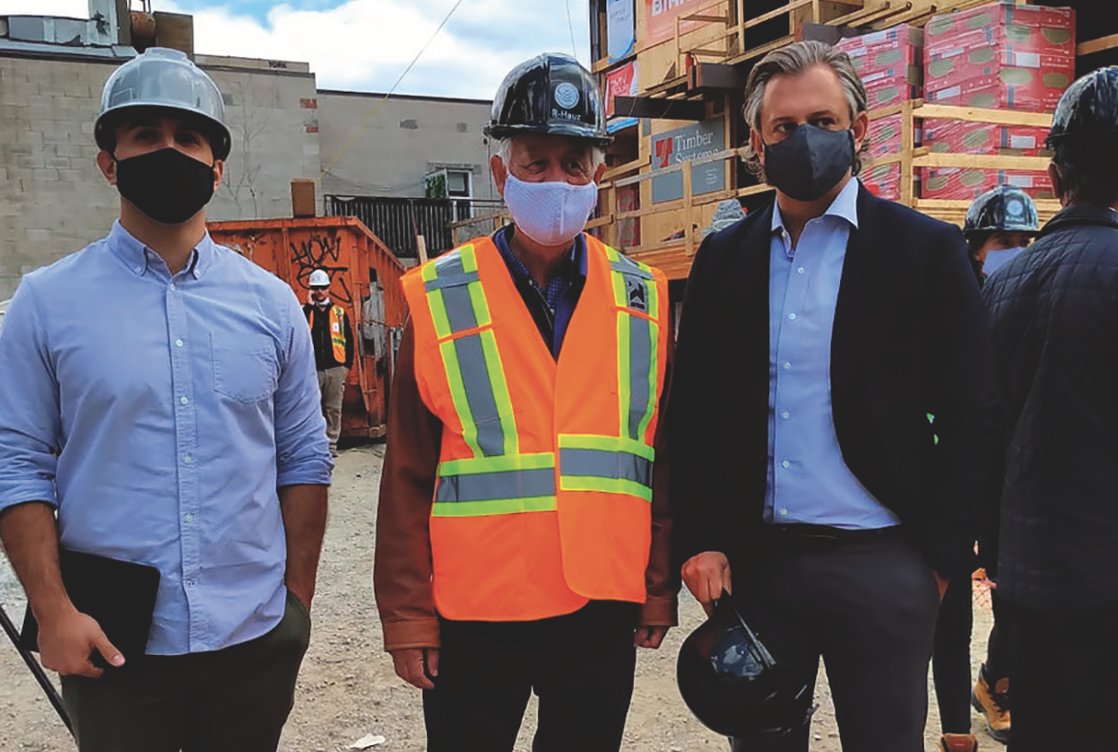A new agency was launched in September to help United Church communities of faith develop their own real estate assets.
The United Property Resource Corporation (UPRC), with a $20-million line of credit from the Canada Mortgage and Housing Corporation, has committed to building 5,000 new affordable housing units across Canada over the next 15 years. The units, both rented and owned, will be built within communities of faith and other non-profits.
You may unsubscribe from any of our newsletters at any time.
With more than 27,000 buildings, faith groups are the second largest real estate holders in Canada, behind only the federal government. Rob Dalgleish, executive director of the EDGE Network, says one-third of United Church congregations will be making decisions to sell or redevelop their property in the near future — that’s nearly 1,000 across the denomination.
Tim Blair, the UPRC’s chief executive officer, says, “We’re offering [congregations] an alternative, so they don’t have to sell the property or go to a private developer who takes the profits. We don’t have the same developer return hurdles, so can reinvest the development profit back into social impact. It keeps the real estate in the United Church so the denomination will benefit over the long term.”
More on Broadview…
- Veterans’ House aims to serve those who have already served
- Study shows faith’s monetary impact on Canadian communities
- How churches are coming together to tackle rural homelessness
The UPRC’s projects will include lowering greenhouse gases and energy usage for each building, by at least 10 percent. Goals have also been set to meet or exceed building-code requirements for accessibility.
Congregations can also turn to the UPRC for expert advice about their land, even if they decide affordable housing isn’t right for them. It will help them redevelop their property in ways that align with their missions, or pre-develop it to sell. Faith groups can work with the UPRC on their full development strategy, or consult as they need at any stage.
While the new corporation was officially launched in September, it had already been working on 30 projects over the past year.
One of them was at Saint Luke’s United in Toronto. That congregation had spent seven years in community consultations and in conversations with a developer, but those plans never came together. With the UPRC’s guidance, it is now planning to create 80 affordable rental housing units, while retaining some church and community space, as it repurposes its 4,500-square foot building, which dates to 1887.
The UPRC is “working with the congregation and providing the expertise,” says Rev. Jim Keenan, Saint Luke’s transition minister. “By this time next year, I can see having a plan going through the City of Toronto process. Then, I think, in another year, they’ll have the shovels in the ground.”
“We are not just building housing,” Tim Blair said in a statement, “we are building homes and communities for all Canadians. If these community assets were sold today the vital benefit to our neighbourhoods would be lost forever. [Now], our vision to develop open, resilient, sustainable communities can truly be realized.”
***
This story originally appeared in the December 2020 issue of Broadview.
Noelle Boughton is a Toronto writer, editor, spiritual director and spirituality workshop facilitator.
We hope you found this Broadview article engaging.
Our team is working hard to bring you more independent, award-winning journalism. But Broadview is a nonprofit and these are tough times for magazines. Please consider supporting our work. There are a number of ways to do so:
- Subscribe to our magazine and you’ll receive intelligent, timely stories and perspectives delivered to your home 10 times a year.
- Donate to our Friends Fund.
- Give the gift of Broadview to someone special in your life and make a difference!
Thank you for being such wonderful readers.
Jocelyn Bell
Editor/Publisher














Question: Is there overlap in the services and expertise of EDGE and UPRC?
Comment: In the third paragraph of the UPRC article, there’s a link to the “EDGE Network”. When I clicked on that link for more information, I was taken to a website that told me “Edge networking is a distributed computing paradigm …”. I don’t think this is the EDGE connected to the UCC.
Thanks for your keen eyes! That link has been fixed.